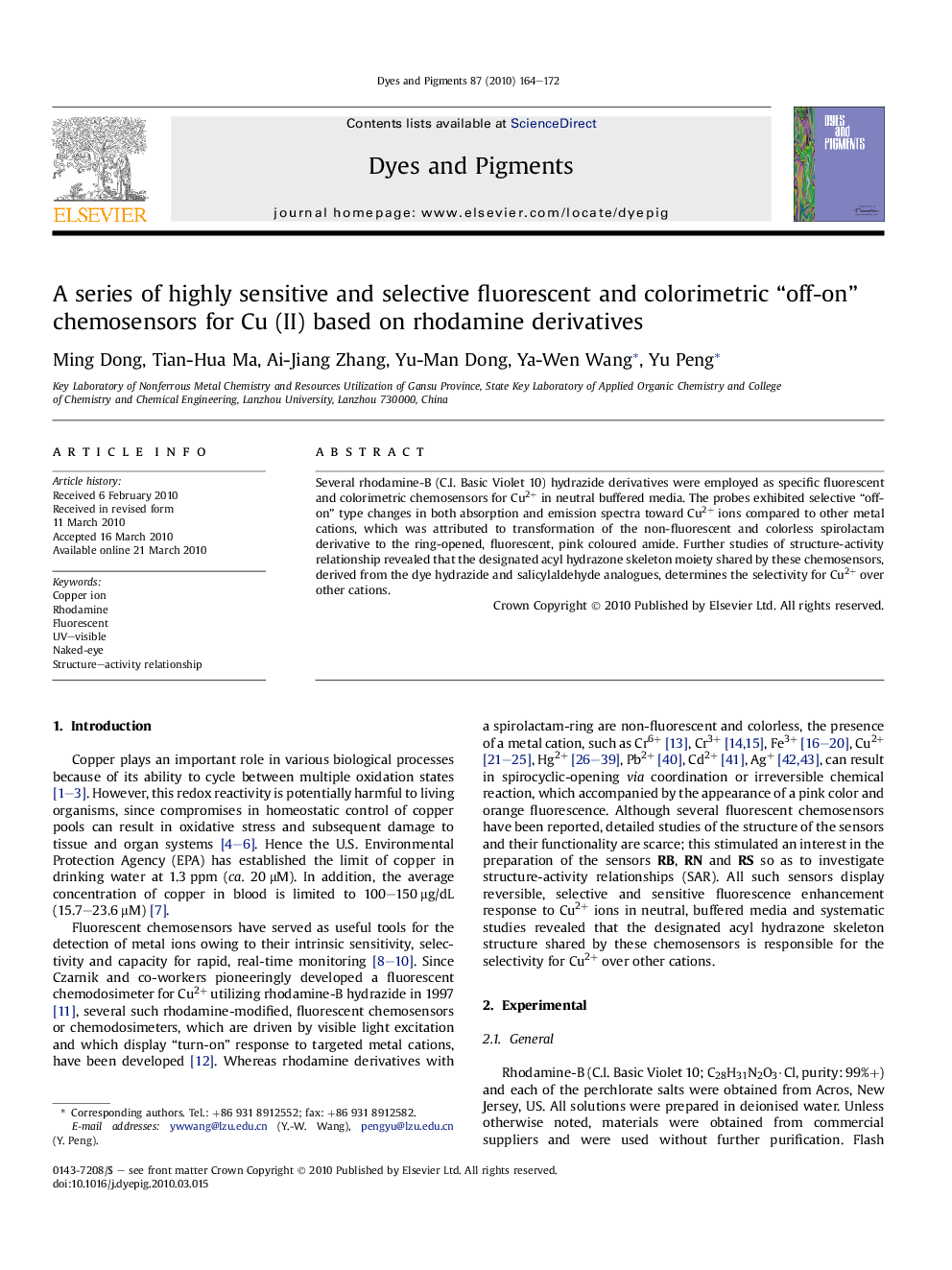| Article ID | Journal | Published Year | Pages | File Type |
|---|---|---|---|---|
| 177190 | Dyes and Pigments | 2010 | 9 Pages |
Abstract
Several rhodamine-B (C.I. Basic Violet 10) hydrazide derivatives were employed as specific fluorescent and colorimetric chemosensors for Cu2+ in neutral buffered media. The probes exhibited selective “off-on” type changes in both absorption and emission spectra toward Cu2+ ions compared to other metal cations, which was attributed to transformation of the non-fluorescent and colorless spirolactam derivative to the ring-opened, fluorescent, pink coloured amide. Further studies of structure-activity relationship revealed that the designated acyl hydrazone skeleton moiety shared by these chemosensors, derived from the dye hydrazide and salicylaldehyde analogues, determines the selectivity for Cu2+ over other cations.
Related Topics
Physical Sciences and Engineering
Chemical Engineering
Chemical Engineering (General)
Authors
Ming Dong, Tian-Hua Ma, Ai-Jiang Zhang, Yu-Man Dong, Ya-Wen Wang, Yu Peng,
